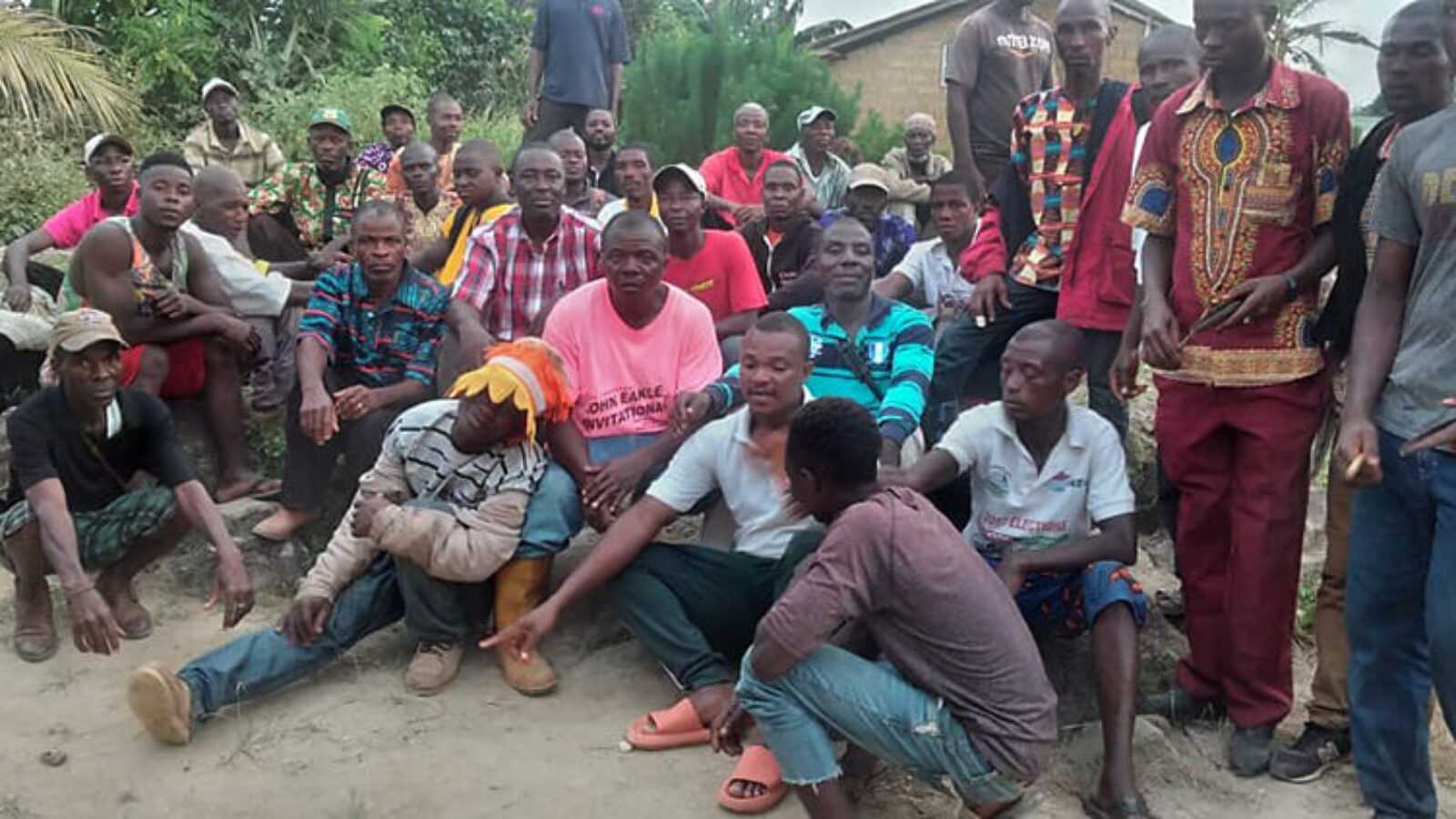Center Staffer in Liberia Defuses Tense Protest
A Carter Center peacemaker leveraged the power of respect, relationship, and the rule of law to resolve a tense standoff in Liberia in late 2021.
Political frustration sparked a protest demonstration on a key bridge in the country’s northwest. Brownie Samukai had been elected in 2020 to represent Lofa County in the Liberian Senate but had not taken office because of a drawn-out criminal trial involving him. A group of about 100 traditional leaders and other men, fed up with the long delay, staged a sit-in on the bridge linking Lofa and Bong counties, disrupting traffic for miles in each direction.
Johnny Ndebe leads the Carter Center’s work with traditional leaders in Liberia. When he learned about the blockade, he jumped into a car and drove four hours from Monrovia to the scene, where police were preparing for a violent confrontation.
“Before getting there, I had called few traditional stakeholders from the region who I have been interacting with, who have been benefiting from the Carter Center Rule of Law trainings and other activities, and they informed the protesters that I was coming there to engage with them,” Ndebe recalled.
“When I got there, they recognized me, and they had confidence that I was there to listen to them and get this situation resolved.”
Ndebe spent three nights on the bridge with the protesters, solidifying their trust and listening to their demands. He carried their concerns to the police commander at the scene, relaying the message that they intended for it to remain a peaceful demonstration. He then escorted the commander to a meeting with the protest leaders.
“The traditional leader said, ‘We want to maintain the public order, but we want the government to know our position.’ They had a nice conversation,” Ndebe recalled.
The protesters then shared their food with tired and hungry police officers.
“The bridge was open before I left and has remained open,” Ndebe said.
Ndebe sees lessons in how the situation played out.
“I look at it in two ways,” he said. “One way is, we need to continue to engage with traditional leadership, to increase their awareness around the legal system — how the government system works, how the legal system works. And on the other hand, we also need to work with the government system to be sensitive to political issues and judicial matters. These issues need to be handled in a timely fashion that will not lead to speculation or disenchantment.”
Ndebe is sure that his decade of engagement with traditional communities helped to pacify the situation.
“The good thing was, I have been working with these leaders across Liberia over the years, you know, helping them to understand the rule of law system and helping them to understand how to resolve community disputes,” he said. “The relationship with them has been great and transparent, and so there is a high degree of respect and regard for our process. The people appreciated my presence.
“And if I hadn’t been able to understand their system, I might have gone there and done the wrong thing and might even have aggravated the situation,” he continued. “Those are things that I learned from it, and we can build on it to increase our relationship and our work in building peace and understanding in Liberia and all around the world.”
Related Resources
Learn more about the Center’s Rule of Law Program »
Learn more about the Center’s Access to Justice Project in Liberia »
Global Impact Starts with You
Your support sustains the Carter Center's mission of waging peace, fighting disease, and building hope around the world.

